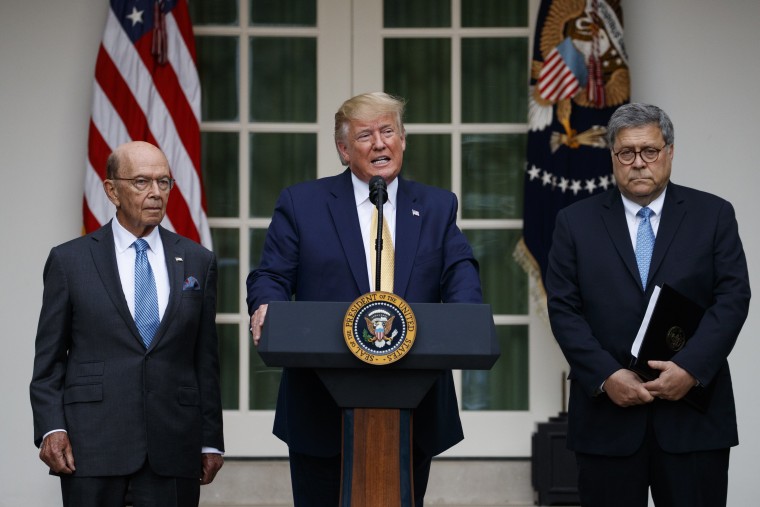The debate over the death penalty in the United States was headed in an unmistakable direction. Public support for executions has broadly waned; officials in many states were moving away from the policy; and in 2015, then-Supreme Court Justice Antonin Scalia conceded that he "wouldn't be surprised" if the death penalty were scrapped altogether.
In the federal system, only three Americans have been executed since 1988, none since 2003. That, of course, was before Donald Trump made Bill Barr the attorney general.
Attorney General William Barr directed the Justice Department on Thursday to adopt a new rule for carrying out the death penalty, which would restore executions in the federal system for the first time in 16 years. [...]In response to the order, the Bureau of Prisons set execution dates for five men on federal death row who have exhausted their legal appeals, all of whom were convicted of murdering children in especially violent crimes. Four of the five also killed adult victims. Their executions are to be carried out in December and January.
As is often the case with this administration, it's not altogether clear what problem Team Trump is trying to solve with this policy shift.
There's little evidence to suggest executions reduce crime rates or improve public safety, and there's ample evidence that the U.S. system of capital punishment is arbitrary -- and too often, racist.
There's nothing to be gained by the United States deliberately choosing to kill more of its own unarmed citizens.
Complicating matters, as Zak Cheney-Rice explained last night, there are some practical elements to consider, as Barr's Justice Department plans to use pentobarbital in the upcoming executions.
For years, pentobarbital was manufactured by Lundbeck, a pharmaceutical company headquartered in Denmark, which created a shortage when it decided to stop selling the drug to U.S. states for executions in 2011, according to Mother Jones.As stockpiles ran low, states scrambled to find alternatives to continue killing people apace. Some, like Texas and Missouri, which, along with Virginia, account for half of all federal death sentences, turned to "compounding pharmacies" -- firms traditionally used to make specialized drug combinations that were unavailable commercially -- to create lethal-injection substances that mimicked the originals. But skyrocketing demand combined with less-stringent federal regulation of these facilities caused problems. Five of the 11 inmates executed in Texas in 2018 complained of a painful "burning" sensation as locally made pentobarbital coursed through their veins -- a testament, critics argue, to the contaminants present at some compounding pharmacies and the faster degradation rates for drugs made in them.
How will the Justice Department address this problem? For now, no one knows, and it's not altogether clear the administration cares.
